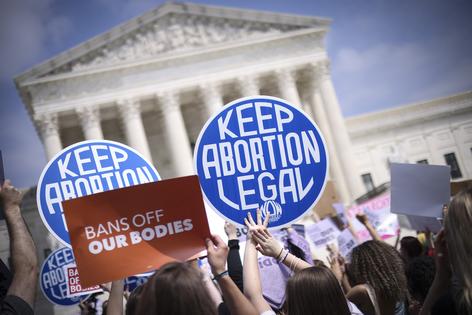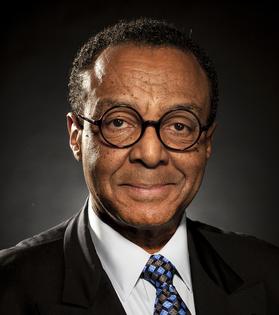Dems, If You Don’t Care About the Supreme Court, You May Not Deserve to Win
Since I’m not a fan of their political agenda, I can’t quite bring myself to congratulate the anti-abortion movement, but I have to give them credit where it’s due.
They’ve worked long and hard to weaken and ultimately repeal the Supreme Court’s 1973 Roe v. Wade abortion legalization decision and their persistence appears to be paying off.
Now it’s up to the mostly Democratic pro-abortion rights movement and their allies to show the world that they, too, still have a pulse.
Although the final opinion isn’t expected for at least another month, a draft opinion leaked to Politico on Monday shows that a majority of justices appear ready to overturn Roe and the 1992 Planned Parenthood v. Casey decisions, two cornerstones of abortion rights in this country. A Supreme Court press release Tuesday confirmed the authenticity of the document.
Democrats condemned the decision, Republicans condemned the leak.
Chief Justice John Roberts ordered an investigation, but it’s hard to see this blockbuster as anything more than terrible news for Democrats, as well as untold numbers of women, who in my view, should have the same right as men to autonomy over their own bodies.
Democrats, take heed. Now is the time to take a good hard look at the calendar and a national map. If the Supreme Court gives the go-ahead, abortion is likely to be banned or heavily restricted in nearly half of the 50 states. Most are red states concentrated in the South and Midwest.
Pro-abortion rights folks may outnumber the anti-abortion voters, according to polls. But the anti-abortion side is more energized — and, although you may have the world’s worthiest agenda, it doesn’t matter much if you can’t deliver the votes.
For this gloomy turn against abortion rights, I credit — or blame — diligent work by the anti-abortion side, a political force that I have been following since its pre-Roe formation in the Southern-based movement to oppose school desegregation.
That’s right. Speaking of powerful organizing issues, it’s hard to beat race and civil rights.
Contrary to the widespread belief that America’s “Religious Right” was born out of righteous fury against the 1973 Roe decision, writes Dartmouth University history professor Randall Balmer, “What prompted evangelical interest in politics, in fact, was a defense of racial segregation.”
In his 2021 book “Bad Faith: Race and the Rise of the Religious Right,” Balmer recounts how two years before Roe, the lesser known 1971 Green v. Connally decision threatened the tax-exempt status of racially discriminatory institutions. The suspect institutions included Bob Jones University, which had its tax-exempt status revoked in a 1976 dispute.
Citing Paul Weyrich, Grover Norquist and other leading conservatives of that period, Balmer describes how the moral crusade against abortion replaced school desegregation as the movement’s central issue later, “when a more palatable issue was needed to cover for what was becoming an increasingly unpopular position following the civil rights era.”
Ironically, American evangelicalism was known as a progressive force opposed to slavery earlier in its history. With the anti-abortion issue, its adherents became powerful enough on the right to help fuel President Ronald Reagan’s rise, the Grand Old Party’s right wing and deliver 81% of white evangelicals to support Donald Trump’s presidency.
But I have been dismayed to see new generations of pro-abortion rights liberals increasingly take that right too much for granted.
While Democrats were focusing on Washington, Republicans were turning to the grassroots politics of Ralph Reed, the former Christian Coalition leader, who said in 1996, “I would rather have a thousand school board members than one president and no school board members.”
As Barack Obama can tell you, grassroots organizing pays off. Organizing from the bottom up has led, as of April, to Republicans holding held a majority in 62 state chambers, according to Ballotpedia, and Democrats held the majority in 36 chambers.
Factor in the Electoral College and you can see how a dedicated minority can take power over a passive majority. All of which helps to explain why the Supreme Court has become overwhelmingly conservative and the outlook for Democrats in the midterms looks gloomy.
Democrats, like other voters, haven’t been nearly as excited about midterm elections as they have been about those in presidential years. But if you can’t get excited about something as monumental as the fate of Roe v. Wade, maybe you don’t deserve to win.
=========
(E-mail Clarence Page at cpage@chicagotribune.com.)
©2022 Clarence Page. Distributed by Tribune Content Agency, LLC.
(c) 2022 CLARENCE PAGE DISTRIBUTED BY TRIBUNE MEDIA SERVICES, INC.


























Comments